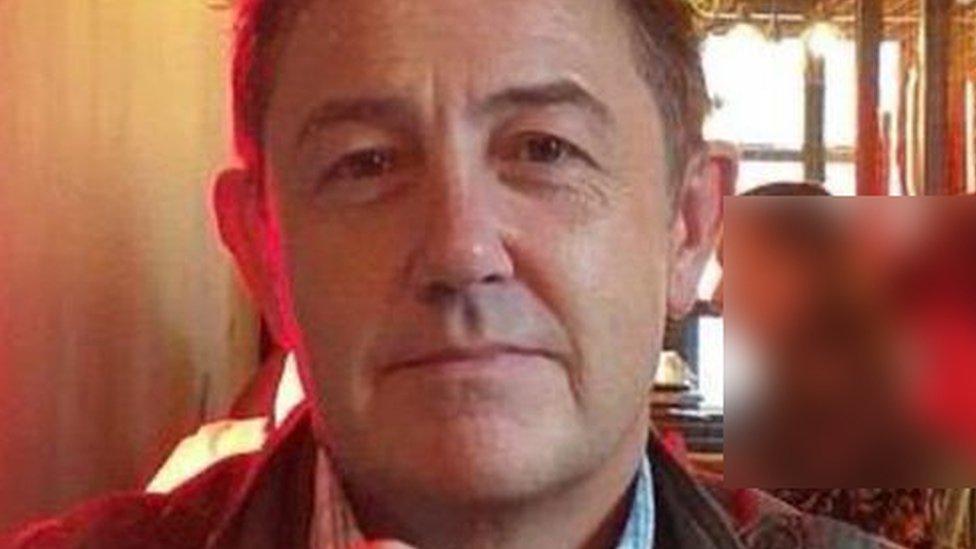Bute Park murder: Gary Jenkins was 'giant in personality'
- Published
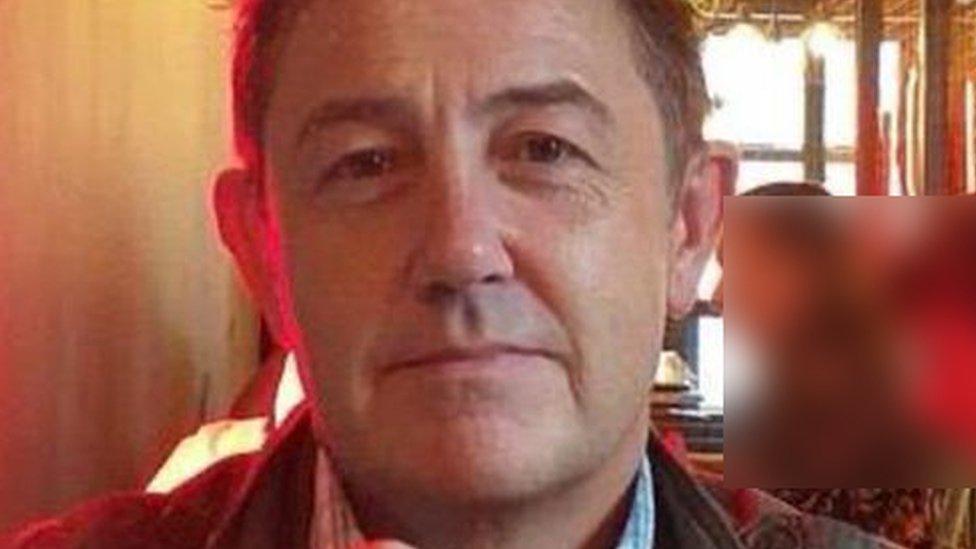
Dr Gary Jenkins was a "lovely, thoughtful, clever man"
As the friends of psychiatrist Gary Jenkins carried his wicker coffin from the church to the graveyard, two red kites circled high overhead.
It was so apt that these beautiful birds appeared just as his coffin was being taken to its final resting place.
These are the words of one of Mr Jenkins' patients, speaking after the trial and conviction of two men and a girl responsible for robbing, beating up, torturing and ultimately murdering the doctor in Bute Park on the night of 20 July, 2020.
The patient, who did not wish to be named, has come forward to share how his care, focus and dedication helped her through the depths of her depression.

Gary loved nature. As a child he spent hours in a makeshift den with his friends, binoculars in hand watching the birds.
That beautiful Monmouthshire churchyard, bathed in warm sunshine and birdsong was in stark contrast to his last conscious moments.
In the transcript of the audio recording of the attack in Bute Park, Gary could be heard saying "Why are you doing this?"
It's a question I've asked myself a hundred times since then. There is no answer.
I knew Gary, he was my psychiatrist and I like to think of him as my friend. Without him, I wouldn't be here today. That might seem like an exaggeration. But it's not.
I first met him not long after I'd been the victim of repeated sexual assaults and bullying in my workplace. No one would help me. I was forced to walk away from a job I loved. I couldn't take any more.
For the first year there were many days I couldn't get up, couldn't get dressed. For more than six months I couldn't leave my front door alone.
The world was too hostile for me.
There was a time that I was so ill that I'd planned and paid for my own funeral and the wake.
I'd stockpiled pills and written goodbye notes, I was just waiting for the right time.
I'd even written one for my bedroom door so that my poor other half wouldn't find me. It read "don't open the door, just call the police. Sorry".
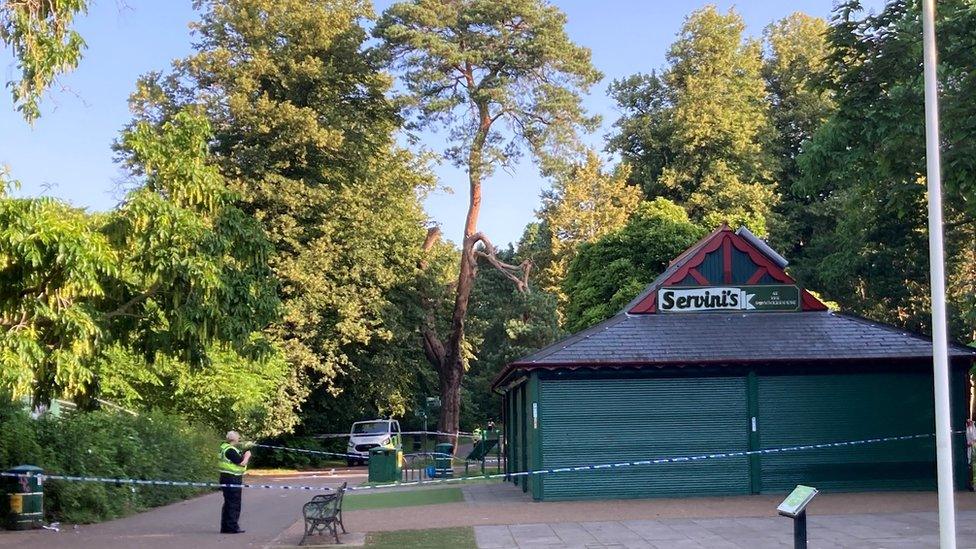
Dr Jenkins was attacked near the Summerhouse cafe in Bute Park
Three years later, I went back to work and back to life.
And that was because of Gary. So what was he like?
Well, he was small in stature, but a giant in personality.
Psychiatry to me, was a mixture of chemicals and kindness. He tweaked the anti-depressants and anti-anxiety drugs until the deep bleak fog of depression began to lift and then, this lovely, thoughtful, clever man began the delicate and difficult work of bringing me back into the world.
Gary rallied a team to get me back on my feet including a PTSD expert who usually works with emergency service staff and a return to work consultant to deal with my employers. He supported my partner and invited him to talk about how he was coping. He was so very thoughtful.
And somehow, over time, he persuaded me that the world wasn't a completely evil and horrible place.
A life well lived
But standing in that churchyard, watching as his two daughters saw their father laid to rest, his family, friends and colleagues heartbroken, I couldn't help but think the world was truly evil.
How could it be that someone so truly good and kind was taken like this?
Gary's funeral was a window on a rich life well lived.
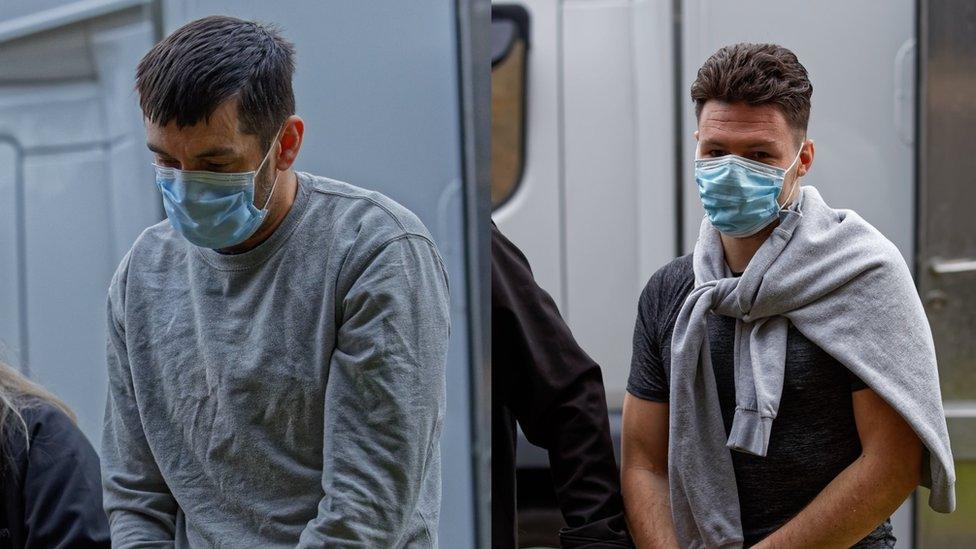
Lee Strickland and Jason Edwards pleaded guilty to manslaughter and robbery but had denied murder
His brave, brilliant daughters who sang and spoke, his love and talent for music and performing evident in every word they spoke, supported by their mother as they gazed at the wicker coffin garlanded with summer flowers.
His childhood friends, remembering those days birdwatching from their den.
His happy early days as a medical student in London, meeting his wife, becoming a dad.
A dedicated parent, someone who loved life.
'Talented musician'
The years of work in that most difficult of discipline, psychiatry, the tributes from colleagues who spoke of ward rounds with Gary being a memorable experience. His knowledge and expertise.
He was the kind of person you'd want for a friend, a talented musician who was always ready to play the piano at a party, someone who loved good food and good conversation.
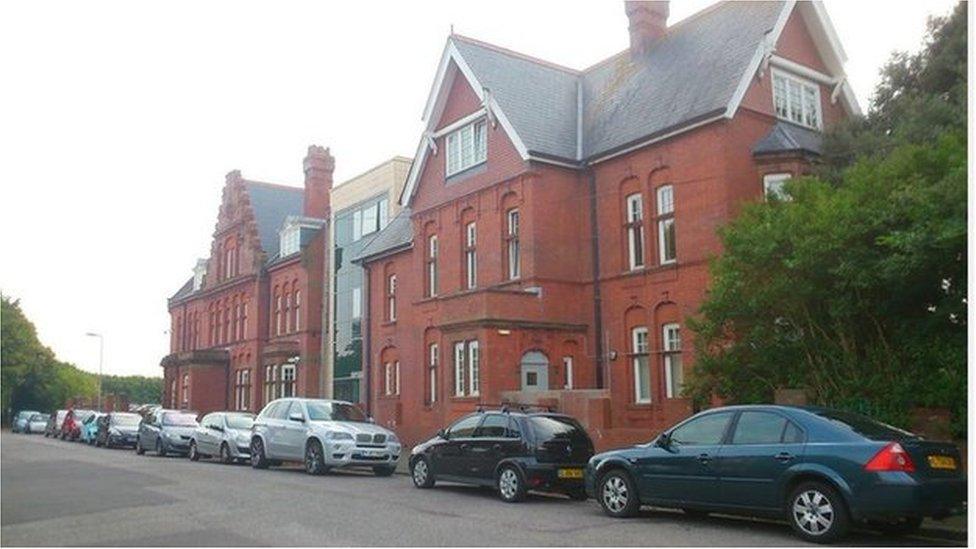
Gary Jenkins worked at the Hamadryad Hospital in Cardiff Bay
After the funeral, the wake was held in the pretty country pub overlooking the churchyard.
Of course, Gary couldn't and didn't talk about his work to his family and friends. His best friend from childhood said it was a part of his life they knew nothing about.
I was so glad to be able to tell him what a wonderful doctor he was - how kind and dedicated, funny and irreverent he could be.
And how when he asked how you were, looking at you with that kind face, you knew, absolutely knew, he really cared.
And that's what writing this is about - telling you about my experience of Dr Gary Jenkins.
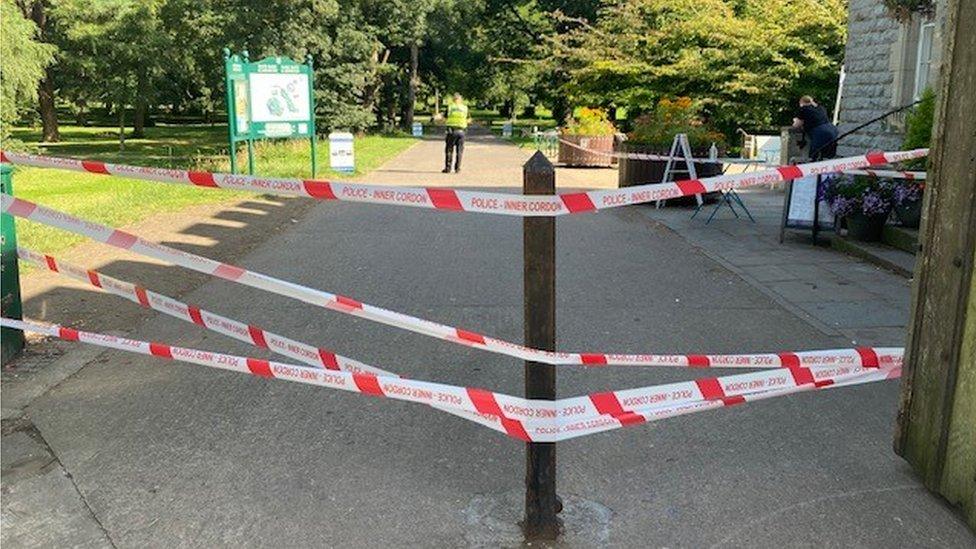
The attack happened in Cardiff's Bute Park
His life is defined by so much more than simply one terrible night and writing this is the only thing I can do to say thank you.
At the time of his death he was thinking about making big changes.
He was hoping to reduce his working hours. He wanted to become a wildlife ranger, spending more time in his beloved nature, after years of dedicated service in the NHS.
It would have meant more time with his family, his friends, more time to live the life he wanted to.
But it wasn't to be. He gave so much, had so much more to give and yet it was taken away from him and that's the hardest part.
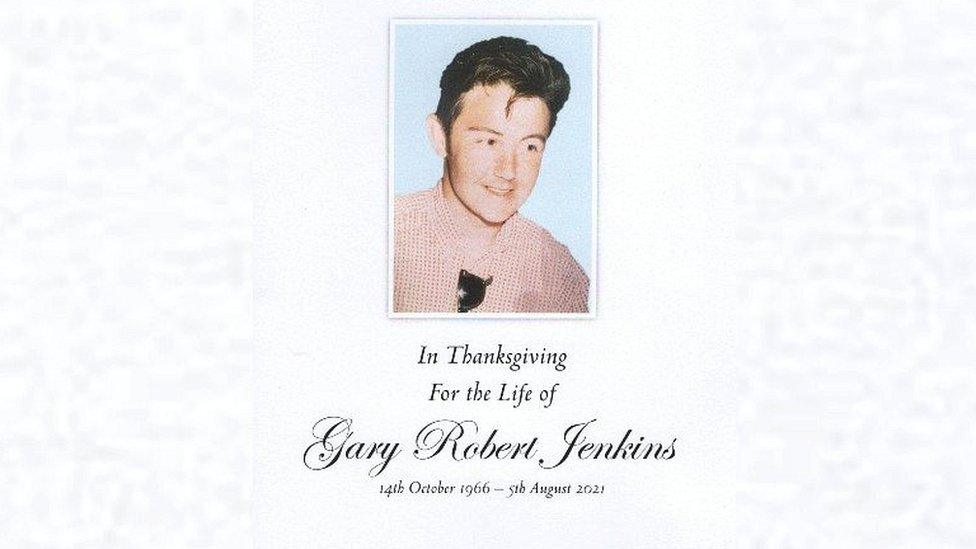
Dr Jenkins was a much loved father and friend
Related topics
- Published3 February 2022
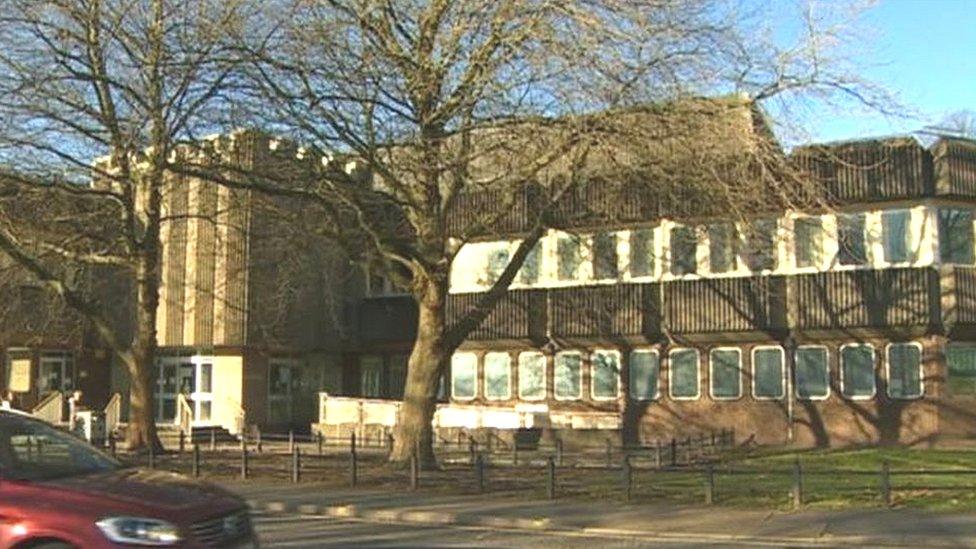
- Published3 February 2022

- Published31 January 2022
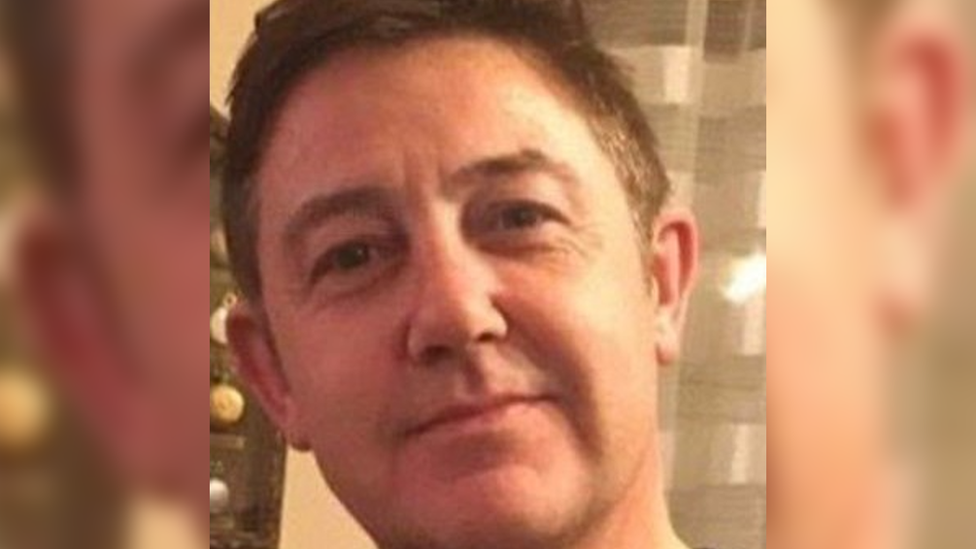
- Published9 August 2021
